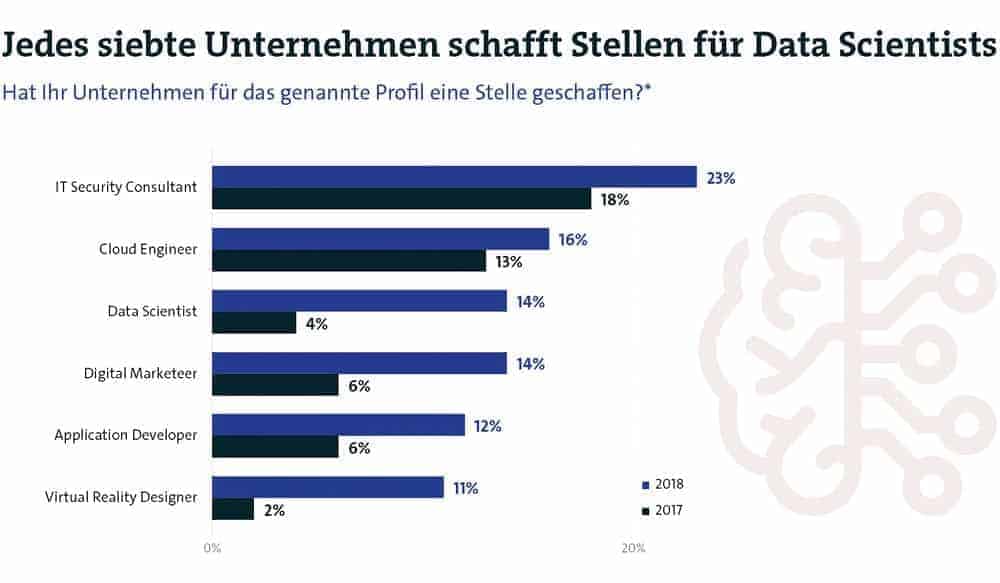Data Engineering - Good career opportunities for data specialists


The representative survey was conducted by Bitkom Research on behalf of Tata Consultancy Services (TCS), and 954 companies with 100 or more employees in Germany were surveyed.
Another result of this survey is that 14 percent of companies with 100 or more employees have already created positions for data scientists. Compared to the previous year, this is almost a fourfold increase.
At that time, only 4 percent had employed such data specialists in-house. At the same time, more than half of those surveyed said they would increase investment in data analytics software this year. A year ago, it was only 38 percent, and in 2016, only 28 percent.
Success through data
"Success in the digital world is determined to a large extent by how companies handle the data that is generated in the various business areas.
Those who not only know but understand their customers' wishes, or who can predict when a machine needs maintenance, have an immediately measurable advantage over other competitors."
says Axel Pols, Managing Director of Bitkom Research.
The need for data scientists continues to grow. For example, 31 percent of companies state that data specialists are a relevant job profile for them. But many other jobs will also change.
At 49 percent, almost every second company sees strong or very strong effects of digitization on employees and workplaces. That is why 45 percent of companies are relying on change management to cope with the digital transformation. This is an increase of nine percentage points compared to the previous year.
"The success of digital transformation depends to a large extent on employees"
says Kay Müller-Jones, Head of Consulting and Services Integration at TCS.
"The prerequisite is structured change management to prepare the workforce for the changes in the digital world of work."
Influence of digitization
The respondents see varying degrees of influence of digitization on different areas of the company. For example, 64 percent say they observe a major impact of digitization on marketing and sales, while 59 percent see this with regard to customer contact.
By contrast, less than one in two companies say that digitization has so far had an impact on their business model or the products and services they offer.
"Anyone who brings their products to the customer via digital channels has at best taken the first step in the digital transformation. At the heart of the matter is the fact that digitization enables completely new offerings and radically changes business models.
says Pols.
"Today, a cab company doesn't have to own cars, an overnight provider doesn't have to own beds, and a retailer doesn't have to own warehouses."
High demand, little supply
Demand is high, but supply is meager: So far, there are only a few data specialists on the German job market. To change this, the Hasso Plattner Institute (HPI) is now offering its students the opportunity to specialize in the field of Big Data.
In the new master's degree program "Data Engineering" of the joint digital engineering faculty of HPI and the University of Potsdam, around 30 students per year will in future deal with data analysis, data management and data visualization.
Future IT specialists learn how to collect, store and analyze large amounts of data reliably, efficiently and securely. As data engineers, data scientists or strategic data analysts, they have the best job prospects and excellent career opportunities in a wide range of industries. Data specialist is thus one of the most sought-after and at the same time most attractive professions of the 21st century.






